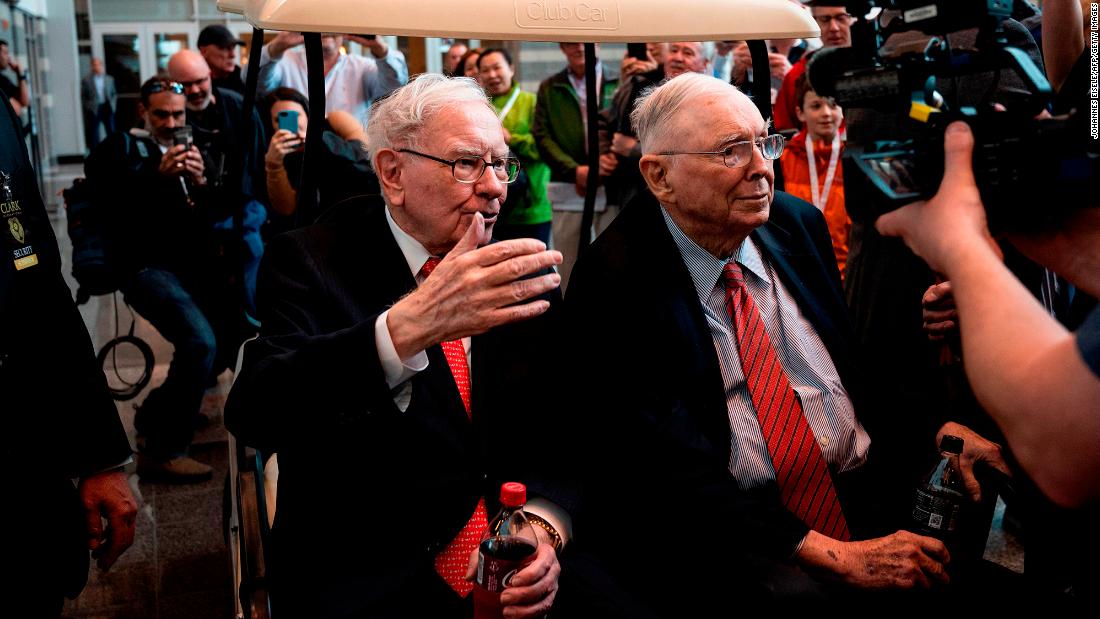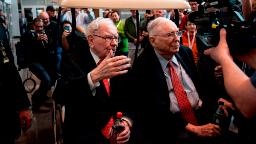

Buffett and Berkshire vice chairman Charlie Munger have been criticized by some investors in the past few years as tech stocks took the market by storm. But Buffett and the 98-year-old Munger have held firm in their belief that owning quality, large cap American companies in the consumer, financial services and energy industries is a good recipe for long-term success.
Still, investing experts point out that Buffett’s penchant for buying top companies and holding them for a long time is what remains key to the success of Berkshire Hathaway.
“One thing that stands out with Buffett and Munger is their ability to produce such great returns over such a long period,” said Bill Stone, chief investment officer with The Glenview Trust Company, in a report. “The investment business is littered with shooting stars that had great returns only to flame out, sometimes in spectacular fashion.”
Stone is also a Berkshire shareholder and will be attending the meeting.
But other experts say they want to know how Buffett and Munger feel about the market in light of the recent slowdown in the economy and concerns that the Federal Reserve is expected to keep hiking interest rates.
“With rising rates and inflation, what kind of asset allocation is appropriate? We’re looking for that Buffett and Munger wisdom,” said Sean Bonner, CEO of Guild, an investment education app catered to military members. Bonner is a Berkshire shareholder who’s planning to go to the meeting for the first time.
Investors will also want to hear what Berkshire plans to do with its massive cash pile, which stood at nearly $147 billion as of the end of February.
Amazon and Apple add to market confusion
It’s been a volatile month for Big Tech, and markets can’t figure out what to make of it all.
Investors’ hopes of finally removing their neck braces hinged on Apple and Amazon reporting first-quarter earnings yesterday afternoon. Some cohesion between the two trillion-dollar plus companies could provide clarity on the market outlook.
But that didn’t happen.
Apple did beat earnings estimates. Revenue grew nearly 9% on an annual basis as sales rose 19%. Earnings per share came in at $1.52, beating estimates of $1.43. The company announced a $90 billion share buyback and a 5% dividend increase.
But Apple’s outlook doesn’t look great. Shares dropped after CFO Luca Maestri warned of Covid-related supply constraints that could hurt second-quarter sales by between $4 billion and $8 billion. Apple is not immune to supply chain challenges, added CEO Tim Cook.
Revenue at Amazon grew by 7% during the first quarter, compared to 44% last year. That’s the company’s slowest rate of growth for any quarter since the dot-com bust of 2001. Forecasts for the second quarter were also disappointing. Growth could slow to 3% from a year earlier.
“The pandemic and subsequent war in Ukraine have brought unusual growth and challenges,” Amazon CEO Andy Jassy said in a statement.
McDonald’s has to ditch millions of Russian burgers
Trash bins in Russia are overflowing with bad Big Macs and moldy McNuggets.
McDonald’s lost $100 million worth of food and supplies after it closed its restaurants in Russia following the country’s invasion of Ukraine. The inventory will “likely be disposed of” said the company.
McDonald’s made the choice to shut down its 850 Russian restaurant locations and 108 restaurants in Ukraine due to the conflict but continued to pay its 62,000 employees and numerous suppliers in the region.
McDonald’s reported better-than-expected earnings and revenue as it offset Russian losses with price hikes in the US and strong international growth.